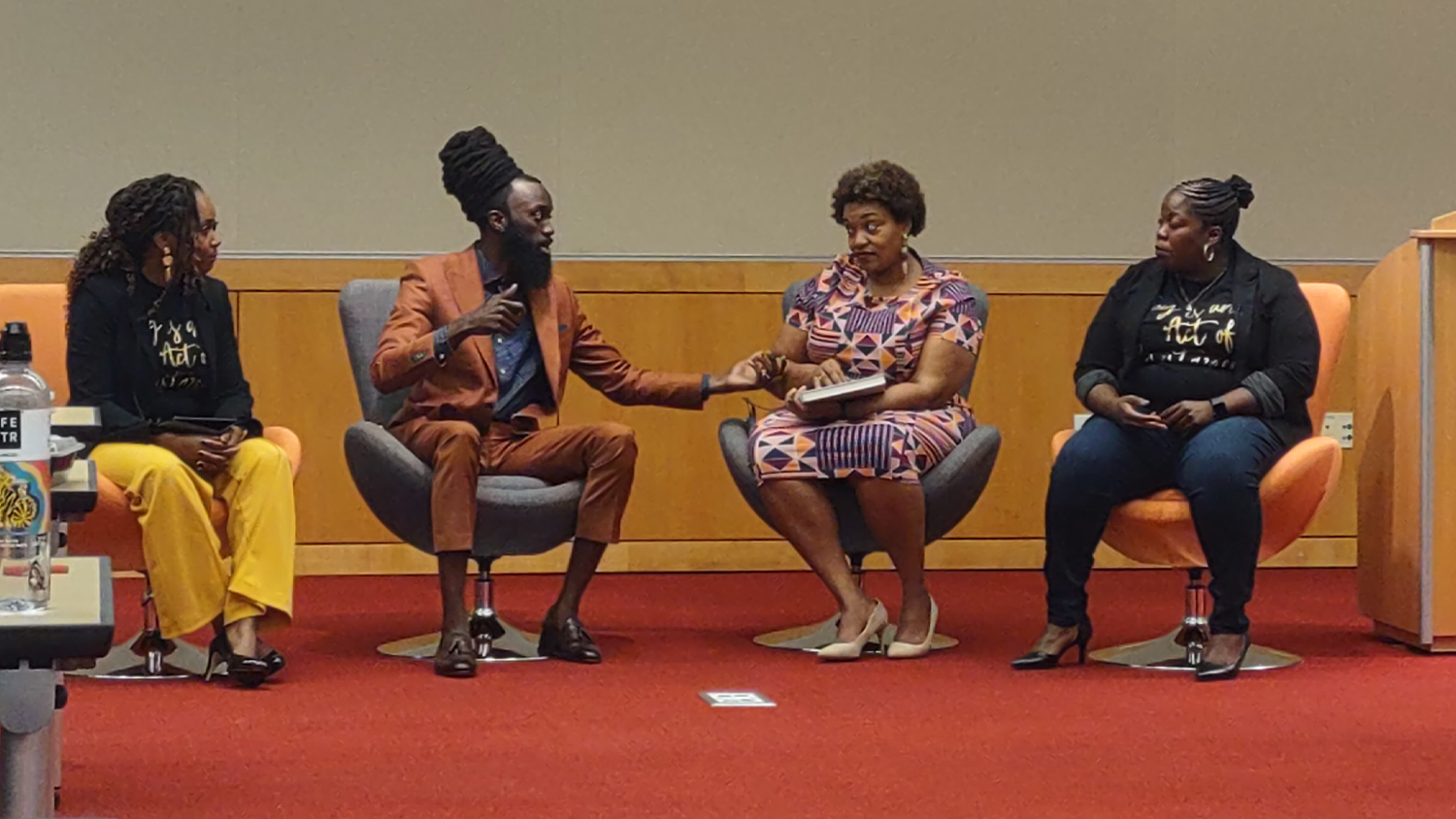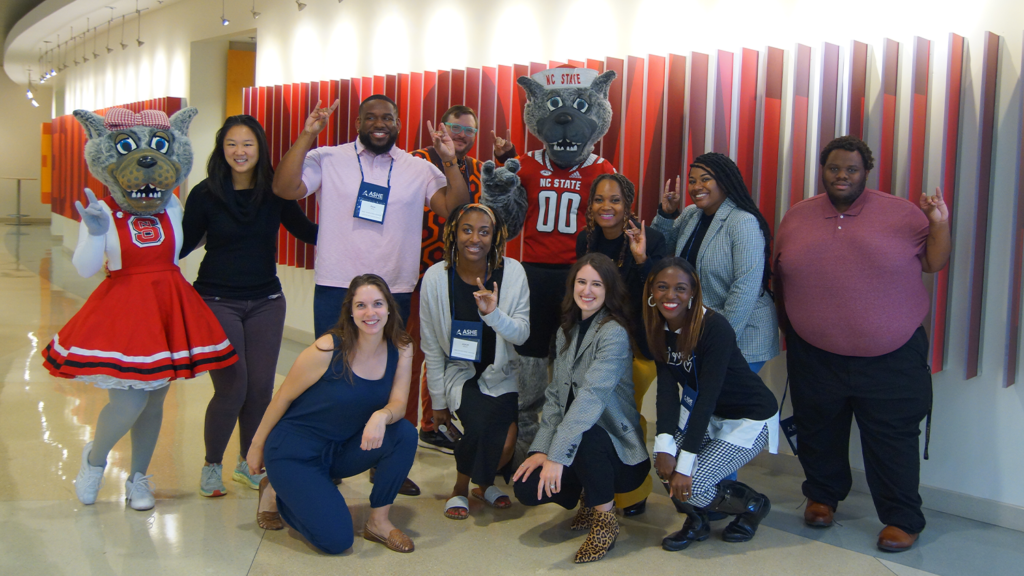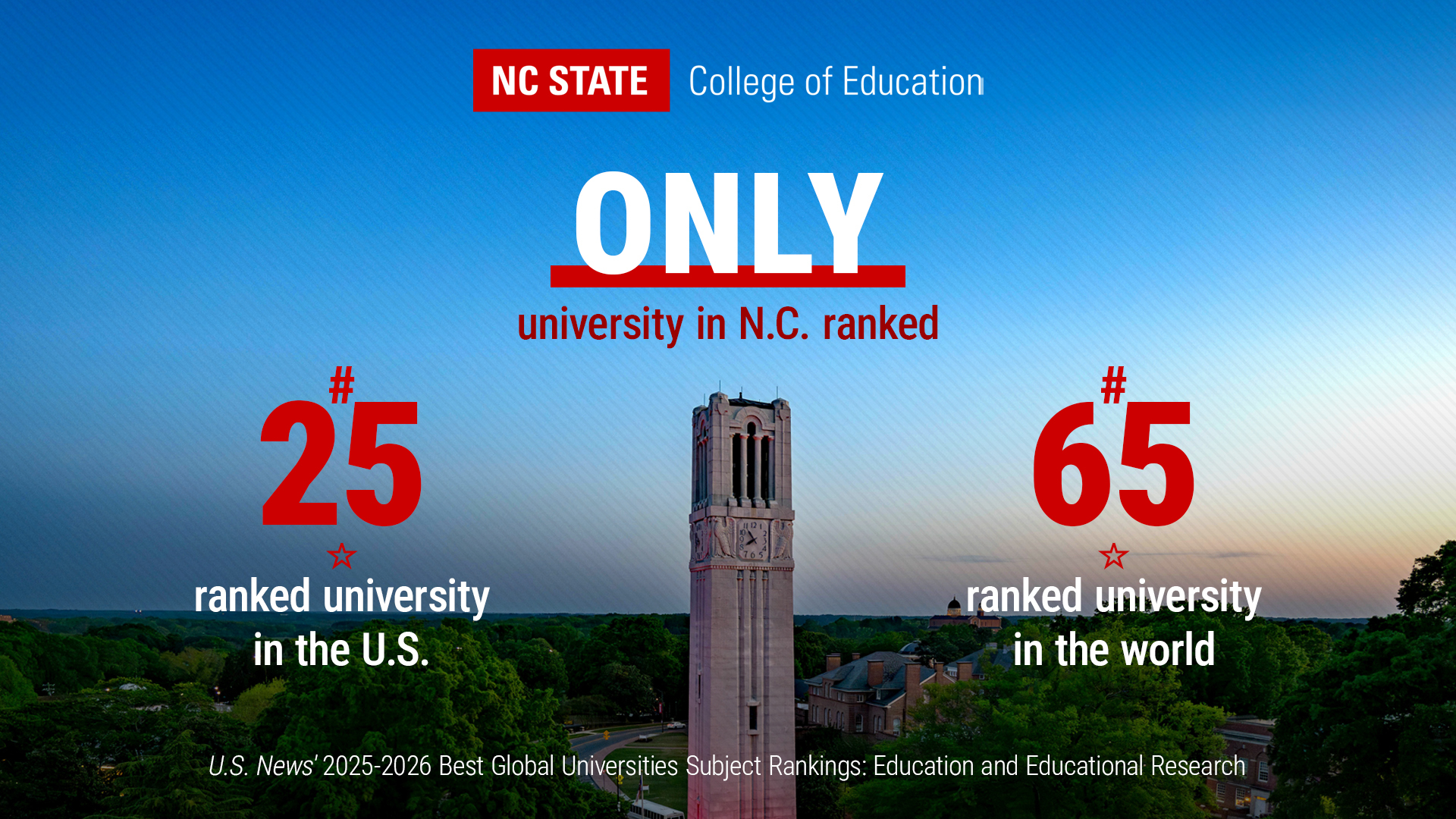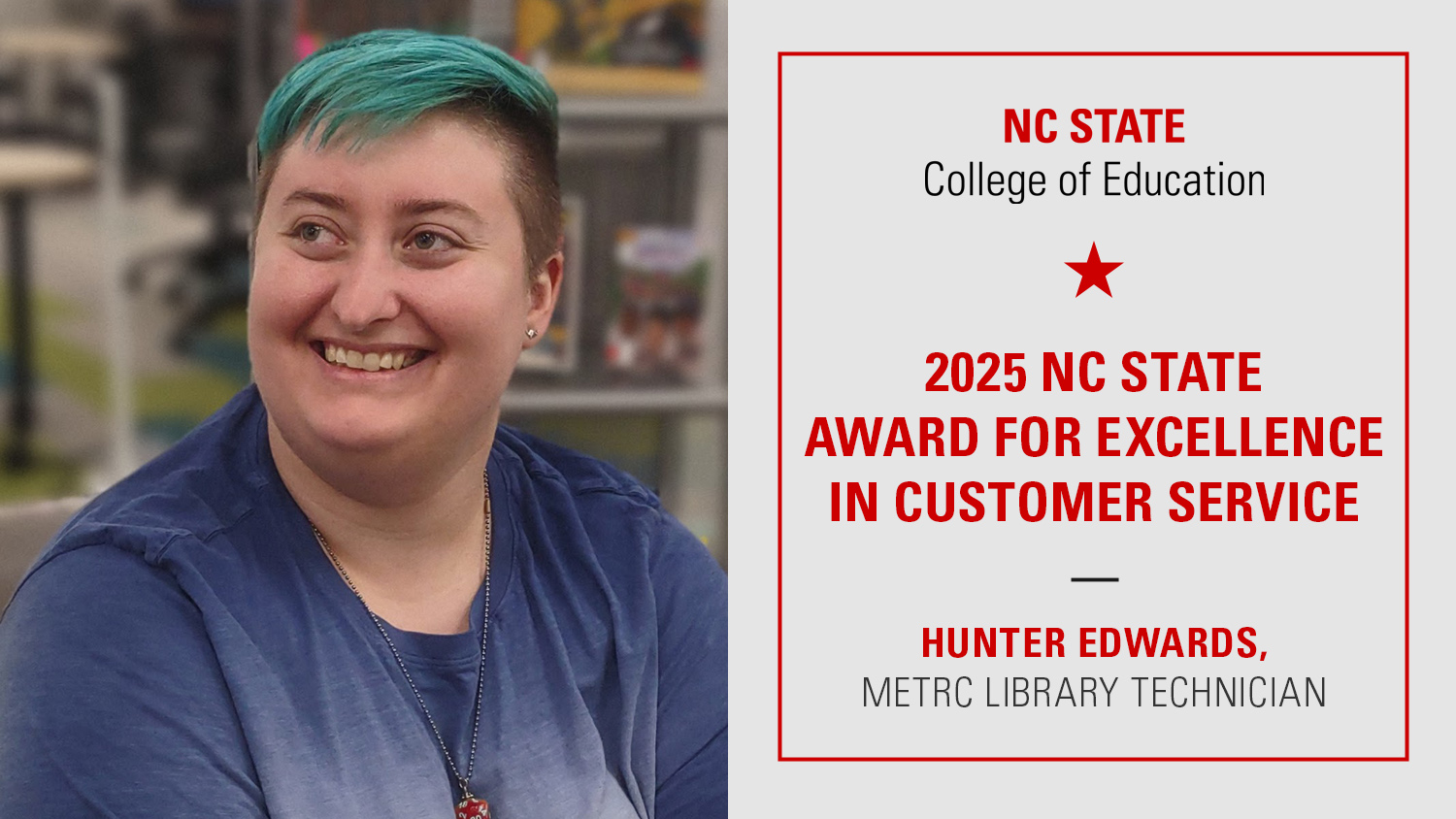‘We’re Just Trying to Find a Different Way to Be:’ Alumni Distinguished Graduate Professor, ASHE President Joy Gaston Gayles Focuses on Cultivating Joy During ACPA/ASHE Presidential Symposium at NC State

What is the difference between joy and happiness? This was one of the many questions explored during the 2022 American College Personnel Association (ACPA) and Association for the Study of Higher Education (ASHE) Presidential Symposium Finding Our Way: Centering Joy, Care and Community held Sept. 30 at the Friday Institute for Educational Innovation.
As the current ASHE president, NC State College of Education Alumni Distinguished Graduate Professor and Senior Advisor for Advancing Diversity, Equity, and Inclusion Joy Gaston Gayles chose the theme of this year’s event alongside ACPA President Andrea D. Domingue.
She felt the topic was a natural choice after the events of the past two years.
“Maybe this is a conversation that we’ve had before, but I just feel like we’re at this inflection point now in our society, with so much going on – a global health pandemic, the great resignation – and we’re just trying to find a different way to be, to know, to do, to act,” Gayles said. “We’re reaching for something beyond what we currently have that we don’t necessarily talk a lot about in the academy, but it’s so important to the work that we do because if we don’t take care of ourselves, we don’t have much to offer.”
In the wake of the COVID-19 pandemic and other world events, Gayles said many people came away with a new sense of what is important to them and gained different perspectives on what they want to focus their time and energy on. The goal of the symposium, she said, was to help each attendee figure out what these new perspectives mean to them.
Panel discussions during the three-hour symposium included “Experiencing Joy” and “Cultivating Care in Higher Education. Below are four takeaways from the discussions.
Joy and happiness can be connected, but they’re not the same
During a one-on-one conversation with Gayles as part of the “Experiencing Joy” session, panelist Wilson Okello, an assistant professor in the Department of Education Policy Studies at The Pennsylvania State University, said the difference between joy and happiness is the same as the difference between feelings and emotions.
Happiness, he said, is fleeting while joy is more elusive. But, when someone finds joy through their creativity and purpose, it can carry them through tough times or oppressive situations.
“The promise of joy is that it escapes our current condition. It thinks in excess of what is and imagines a world that could be. It’s a deeper plane that we’re attempting to get to,” he said. “I would love if we could all exist in a sort of utopian world where gladness and happiness were all we needed, but I need something I can do something with. I need something that is going to take us through the happy days, but also the sad ones. I need something that’s going to anchor me and happiness can’t do that. Gladness can’t do that.”
Joy is for you, but your joy benefits others
When space is created for cultivating joy, Gayles said, joy can be rejuvenating and keep a person centered. That is why she and Okello said it is important for educators to be intentional about cultivating their joy in order to put their best selves forward for their students and their scholarly efforts.
“Cultivating joy is for me, but what comes out of that [process] is for you. You can’t do for others until you fill your cup up,” Gayles said. “When you take the time to cultivate joy and when you are intentional about doing that, it fills you up in such a way that you cannot just say it, you can be it. And when you let your light shine in that way, it gives permission for other people to do the same.”

Start from a place of humanization in your classroom
When she began her career in academia, Gayles admitted she was so focused on trying to behave the way she thought a professor should behave that she wasn’t showing up as her authentic self for her students.
When she joined the College of Education, she decided to make a change, believing her students would benefit if she showed up as her full self and was honest about her own life. By being vulnerable with her students and bringing the real world into her classroom, they are able to connect on a deeper level.
“I remember one time, I think it was last year, I just stopped the class and I said, ‘I’m not OK, are you all OK?’ And we just scrapped the plan and talked about … what are we going to do and how do we hold ourselves accountable for making sure that we do something on a regular basis to take care of ourselves,” Gayles recalled. “A lot of times, the academy has a way of breeding perfectionism. Nobody’s perfect, but we run around trying to pretend to be perfect when there’s no such thing. I don’t even want to pretend. I want to be who I am.”
Make room for grief and caring
During the “Cultivating Care in Higher Education” session, Domingue and Joan Collier, assistant vice president for equity & inclusion at Rutgers University, shared that they feel there has been a sense of grief in the air as faculty and students have returned to campuses in the wake of the pandemic.
People are grieving for opportunities they missed out on, jobs that may have been lost during the pandemic, and the loss of friends and family. Institutions, like universities, they said, don’t always have systems in place to give people adequate time to grieve. They called on higher education to find ways to adopt new policies in the wake of the pandemic, rather than returning to old norms.
“We want the comfort of familiarity, but we want something that actually cares about us because we are more clear than ever that we’re not promised tomorrow,” Collier said. “We’re more clear than ever about who matters to us and what matters to us and the structures are saying [something else] is what matters. That doesn’t work. It actually didn’t work before, we were just tied to it, and there hadn’t been the collective break for us to say it could be different.”
- Categories:


